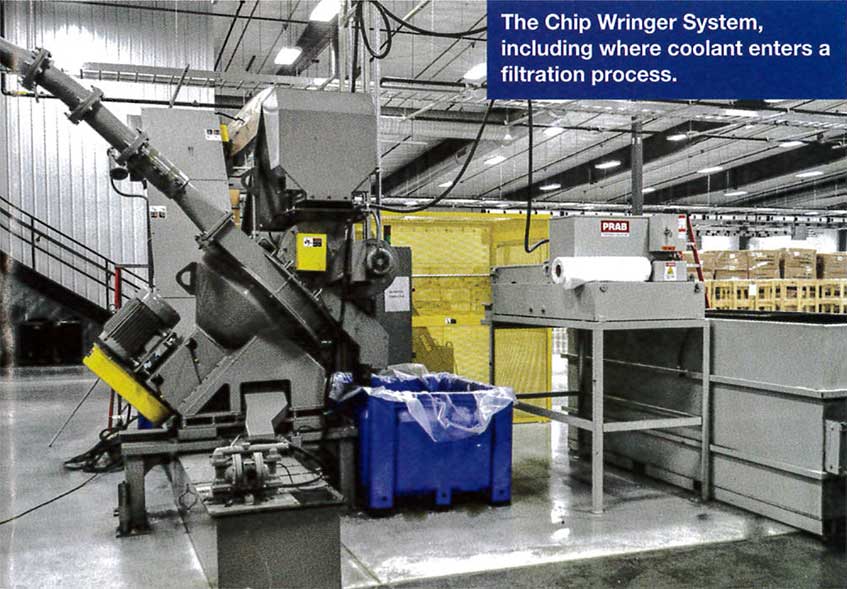Kalamazoo, Mich., July 20, 2014 – Featured in Modern Machine Shop Magazine. Mathews, Inc is a manufacturer of Bows and Archery Equipment. The company has been in business since 1992 starting with 26 people, growing to now over 400 full-time employees. Another recent expansion to a new 56,000 sq ft facility provided the added capacity necessary to meet customer demand for their products. The company machines Aluminum to build their Bows and accessories. The expansion meant increased capacity for machining centers but also additional metal scrap. Scott Jenkins, Machine Shop Manager Equipment & Design at Mathews worked with Randy Brown, Executive Account Manager for United Milwaukee Scrap, LLC to help develop a cost-effective solution to the challenge of processing the increased volume of Aluminum chips.
Randy has worked with Mathews and Scott for many years, helping them to effectively manage their scrap, even in tight spaces and confined areas, but always with the goal of getting the most value for the scrap. Randy and Scott reached out to PRAB, Inc.for assistance. They worked with PRAB design engineers and Gull Material Handling, a local PRAB representative, to come up with a comprehensive system to automate chip processing and provide United Milwaukee Scrap with the driest quality scrap possible.
Equipment Engineered by PRAB for the Mathews, Inc Plant;
The process for the fully automated system begins with carts that are wheeled from each machine to the central processing system. The cart is wheeled and locked into the hydraulic cart dumper, the operator uses a handheld control to operate the dumper which empties the cart, filled with Aluminum chips and oily coolant, into the in-feed hopper. The material is moved through a screw/auger conveyor into a parts separator where any large parts or trash are separated from the chip and fluid stream. The wet material then goes into a Chip Wringer or Centrifuge. This unit spins, using centrifugal force to separate the Aluminum chips from the oily coolant mixture. The liquid falls to the bottom and is collected in a settling tank.

The dry Aluminum chips are moved overhead using compressed air, pushing the chips through piping. The chips are blown into the back of the semi-trailer provided by United Milwaukee Scrap. The end of the pipe has an engineered telescoping pipe extension. This extension allows the truck to be filled from the front of the trailer to the back. An ultrasonic sensor is used to detect the level of chips in the trailer, when the chips reach a given height the telescoping sensor moves back to fill the next section of the trailer. This allows Mathews to automate the entire process and for them to maximize the volume in the trailer. The oily coolant is pumped from the settling tank into a Guardian Filtration unit. This unit uses coalescing technology to clean the coolant and provides for recycle and reuse.
Scott from Mathews explains the chip processing system not only has increased his return on the Aluminum (going from 15% moisture content before the chip processing system to less than 1% after), but also has saved on labor costs and cut down his coolant annual expenditures because he can now reuse much of the coolant.
The key to this system’s success was the scrap recycler knowing the technology and capabilities of PRAB and understanding the positive value to their customer.